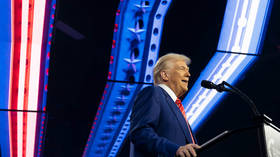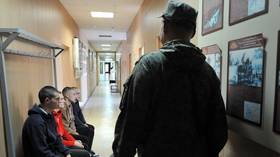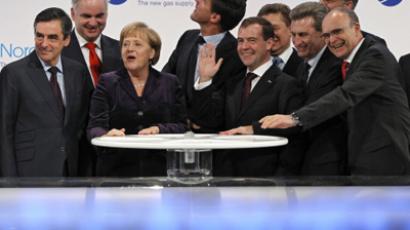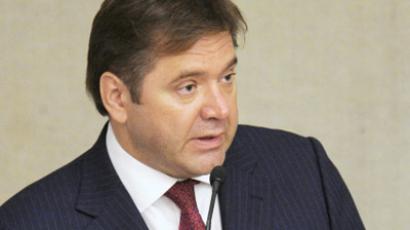Yamal gas: and Qatar is coming too
Russia's Energy Minister Sergei Shmatko says he wants to speed up an agreement which will see Qatar take part in Yamal gas project. Meanwhile Qatar is mulling over taking an additional stake in Novatek, the company behind the development.
The project is expected to produce 5 million tonnes of LNG a year starting in 2016, and reach 15 million tonnes by 2018. Qatar's Energy Minister Mohammed al-Sada says the country is keen to take part in the project. “Yamal is an important project and we are really interested in being effective partner to participate in the development of that project. We are active in discussions and negotiations with our partners.”Novatek is currently developing the Yamal Peninsula in Russia's arctic to produce liquified natural gas (LNG), at an estimated cost of around $20 billion. The project is expected to produce 5 million tonnes of LNG gas per year starting in 2016. It should then take two years for production to reach 15 million tonnes annually.Novatek plans to bring foreign shareholders into the project retaining a controlling stake of 51%. France's Total has been offered 20% of the Yamal project the rest will be divided between two or three foreign investors.Leonid Mikhelson, CEO Novatek, says Total is in talks with other foreign partners on partnership in the Yamal LNG project, including investors from India and Qatar. Shmatko noted that Qatar companies are major players on the LNG market and its expert in arranging LNG shipments and the operation of LNG carriers could be of use in the project."Qatar is a major professional player, which could be used in the financial, technical and in time marketing sides. We know about Qatar’s achievements in developing LNG transport. I'm talking about the construction of LNG carriers, cooperation is possible here,”Shmatko said.Europe is one of the core LNG consumers accounting for 18% of global LNG deliveries. In 2010 alone, LNG supplies to Europe rose 34%. Shmatko says the consumption and volumes of supply will be growing further."Today, demand for LNG is higher than its supply. However, by the end of the decade, the picture could change significantly due to an increase in LNG production in Australia. By 2020, world LNG demand could exceed 400 million tonnes a year,”he said.Until then global gas exporters in the Middle East, North Africa, Central Asia and Australia are expecting to boost production to meet demand. According to a U.S. Energy Information Administration forecast natural gas production will grow by over 700 billion cubic meters per year by 2035.President of the Russian Gas Society Valery Yazev, says the forecast could be even more optimistic as Middle East countries intend to increase gas extraction. "There are bolder forecasts based on the assumption of significant growth in gas production in Iran and Saudi Arabia. In that case, total production will grow by around 1 trillion cubic meters of gas,” Yazev said.Ultimately, tough competition and a production surplus could result in price reductions and have an effect on profitability. Yazev says in this case Russia could cut the production to maintain prices."Obviously, all of that gas will find consumers, but the price could substantially decrease, and then the profitability of Arctic and shelf gas production as well as shale gas production, could fall sharply.”At the same time the Eastern route for Russian energy resources grows in importance, especially since gas prices in Asia with delivery exceeded $540 per 1,000 cubic meters in September 2011.He added that serious competition awaits the Russian gas sector for a share in the European gas market. "Over the next few years, the prospects for shale gas production in Europe will become clear. LNG's increasing share of the European gas market, growth in gas supply from the southern Mediterranean, as well as supplies from Central Asia and the Caucasus have made several experts suggest a substantial reduction in Russia's share of the European market by 2040 to 13%.” Yazev saidThe VP of oil and gas research at Renaissance Capital, Ildar Davletshin, says if the deal with Qatar goes through it will send a positive signal to the industry.














